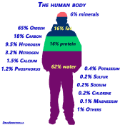Stopping Alcohol without Professional Supervision
Alcohol is the most commonly used drug in Canada, along with cannabis. An estimated 15% of Canadians who consume alcohol do so above Canada’s low-risk alcohol drinking guidelines. The dangers of stopping alcohol use are seen in those who drink regularly and in big quantities.
In 2017, the hospitalization rates because of alcohol reached 249 per 100,000, which was on par with the rate of heart attacks. Hospitalizations because of alcohol were thirteen times higher than for opioids. In 2014, alcohol contributed to 22% of all substance use attributable deaths.
It is a dangerous addiction that causes life-threatening withdrawal symptoms and physical dependency. In addition, it is common to abuse other drugs, such as prescription opioids or benzodiazepines. Together, these drugs result in potentially deadly withdrawal symptoms.
Alcohol Withdrawal Symptoms
The exact timing when withdrawal symptoms occur is different for each person. Some of the common withdrawal symptoms include:
- Rapid heart rate
- Sweating
- Heart palpitations
- High blood pressure
- Insomnia
- Nausea and vomiting
- Hallucinations
- Anxiety and agitation
A rare condition occurs when withdrawal symptoms are mismanaged, or medical attention is not sought. The result can be violent seizures, delirium tremens, or even death.
The severity of withdrawal symptoms depends on how much is consumed, how often, and how long alcohol was consumed. In addition, older adults are at an increased risk of severe withdrawal symptoms, seizures, and other health complications.
Overall, the exact time differs for each person. Still, withdrawal symptoms generally begin within 6 to 24 hours after the last drink was consumed.
Alcohol Withdrawal Timeline
For the first 6 to 12 hours—withdrawal symptoms are mild. They may include insomnia, tremors, anxiety, headaches, sweating, heart palpitations, and loss of appetite.
12 to 24 hours—Generally, individuals begin to experience auditory or visual hallucinations.
24 to 48 hours—During this time, there is an increased risk of seizures, especially if the individual has a history of seizures.
48 to 72 hours—At this time, there is an increased risk of delirium tremens, agitation, hallucinations, disorientation, high blood pressure, fever, and sweating.

Stages of
Addiction
Drug
Overdose

The Dangers of Using Alcohol with Other Drugs
Combining drugs with alcohol is dangerous. In addition, physical dependency on other drugs with alcohol abuse increases the risk of severe withdrawal.
- Depressants—The combination of these drugs with alcohol can be lethal, causing rapid onset dizziness, stumbling, memory loss, and potential death.
- Stimulants—The combination of these drugs with alcohol increases the level of intoxication, causing significant impairment of coordination and judgment, blackouts, and potential death.
- Prescription pain medication—The combination of these drugs with alcohol results in slowed or arrested breathing, lowered pulse, blood pressure, unconsciousness, coma, and death.
The individual faces intensified withdrawal symptoms when withdrawing from alcohol and other drugs. There is an increased risk of severe outcomes without proper detox or withdrawal management.

Alcohol
Overdose
Understanding
Cravings

Effectively Managing Alcohol Withdrawal

Alcohol withdrawal is intense, dangerous, and uncomfortable. Due to the increased risk of severe outcomes, it is crucial not to stop alcohol use abruptly. Professional medical help and medical detox are critical.
Medical detox programs manage alcohol withdrawal by using medications, such as benzodiazepines, which treat acute alcohol withdrawal. Medications are used to mitigate withdrawal complications.
Tapering a person off these drugs while in detox has proven effective with severe cases of alcohol withdrawal.
However, it is not uncommon to stop alcohol use cold turkey, but this should be done only with proper medical help and supervision.

Alcohol and
Depression
Drug Induced Psychosis

Alcohol Use and Benefits of Withdrawal Management
There are significant benefits to proper withdrawal management with alcohol addiction or other drug addiction. The purpose of detox is to prepare a person for drug rehab. Substance use treatment centers will not allow a patient to enter drug rehab unless they are adequately detoxed or have been sober for a number of days or weeks.
Additionally, withdrawal management is vital for anyone with underlying medical conditions who face an increased risk of severe withdrawal and life-threatening withdrawal symptoms.
Finally, the primary benefit of adequate withdrawal management is constant medical supervision. Anything could happen while withdrawing from alcohol and other drugs. Having proper medical support and supervision ensures emergencies are correctly managed.

Addiction Series
- Alcohol and Depression
- Alcohol, Dangers in Stopping
- Alcohol Overdose
- Addiction – Beginning
- Addiction Symptoms
- Addiction Consequences
- Drug-Induced Psychosis
- Drug Overdose
- How to quit crack cocaine?
- It’s Difficult to Quit Drinking
- Overlooking Addiction & Diagnosing Depression
- Stages of Addiction
- Quitting Weed
- The Functional “Addict” Defined
- Understanding Cravings
- What is Addiction?
- Alcohol and Depression
- Alcohol, Dangers in Stopping
- Alcohol Overdose
- Addiction – Beginning
- Addiction Symptoms
- Addiction Consequences
- Drug-Induced Psychosis
- Drug Overdose
- How to quit crack cocaine?
- It’s Difficult to Quit Drinking
- Overlooking Addiction & Diagnosing Depression
- Stages of Addiction
- Quitting Weed
- The Functional “Addict” Defined
- Understanding Cravings
- What is Addiction?
Find out more about us.

Marc J. Bernard
Author,
Substance Use Disorder & Recovery Professional,
Referral & Consultation Counsellor





